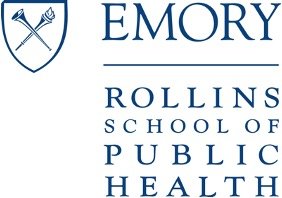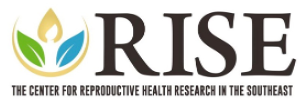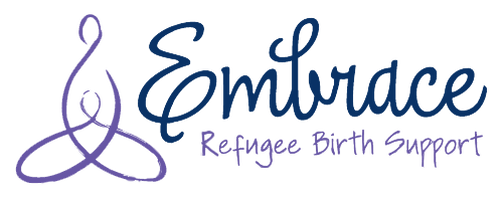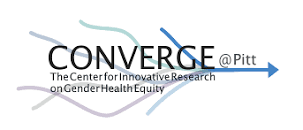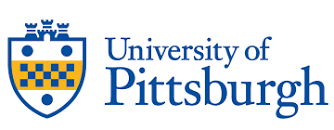Hi, I’m Elizabeth Mosley, PhD MPH.
I am an interdisciplinary sexual and reproductive health professional, who bridges community-based research, advocacy, qualitative, and quantitative methods to understand and improve health and social inequities in the United States and around the world.
I am an Assistant Professor in the Division of General Internal Medicine at University of Pittsburgh School of Medicine Center for Innovative Research for Gender Health Equity (CONVERGE), and an Affiliate Faculty Member with Emory University Center for Reproductive Health Research in the Southeast (RISE).
I serve on the Morehouse School of Medicine Maternal Health Equity Center Steering Committee and on the Embrace Refugee Birth Support Advisory Council.
Learn more about me below, and reach out for opportunities to collaborate on research, teaching, media requests, or conscientious consulting!
Background & Education
Growing up in Savannah and Vidalia, Georgia—moving between urban and rural Southern worlds—I witnessed and experienced their complex social hierarchies and norms, especially around race, gender, and sexuality.
When I went to college at the University of North Carolina, I was both living and fascinated by women’s health disparities at the intersection of biology and gender inequity. I worked at the Carolina Women’s Center advocating against sexual violence on campus. But after I lost one aunt to breast cancer and another to ovarian cancer, I began researching racial and class disparities in reproductive cancers.
I then pursued a Master of Public Health in Health Behavior. There, my Capstone Project focused on statewide community engagement for intimate partner violence prevention in North Carolina. At the same time, I became trained as a doula through UNC Birth Partners and DONA International. I’ve been practicing as a full spectrum doula since 2009.
Working Locally for Global Impact
After graduation, I assisted gender equity, family planning, and HIV research and programs in sub-Saharan Africa and Asia at FHI360, an international development and health non-governmental organization. Realizing I needed more global health field experience, I pursued a Global Health Corps fellowship with the Elizabeth Glaser Pediatric AIDS Foundation in Uganda focused on integrating maternal health into existing HIV programs.
Experiences in Uganda showed me how impact at the structural and societal level (policies, institutions, social norms) was desperately needed if we ever hope to achieve global health equity. This inspired me to pursue a PhD in public health and population studies at the University of Michigan.
The National Institutes of Health funds a predoctoral training program in public health demography, for which I was a trainee. Honing my expertise in community-based participatory research, I assisted the Detroit Youth Passages project. The study partnered with the Ruth Ellis Center, Detroit Hispanic Development Corporation, and Alternatives for Girls to address housing instability, joblessness, and sexual vulnerability.
For my dissertation, I explored abortion attitudes in South Africa and the United States using a reproductive justice framework to understand the implications of abortion stigma on health equity in the two settings. I was a visiting scholar in Johannesburg at the University of the Witwatersrand.
Launching a Faculty Career in Georgia
Eager to apply what I had learned to my “own backyard” of Georgia, I began a postdoctoral fellowship at Emory University Center for Reproductive Health Research in the Southeast. Partnering with reproductive justice organizations, I used community-engaged methods to develop abortion stigma interventions with faith communities, explore medication abortion among Black and Latinx women, and evaluate Georgia’s abortion policies.
My faculty career began at Georgia State University School of Public Health with the Mark Chaffin Center for Health Development and the National Center for Sexual Violence Prevention. There I was funded by NICHD on “Mom and Baby Net,” a mobile postpartum depression intervention and by the Department of Defense to help develop and evaluate a sexual violence, domestic violence, and suicide prevention training program.
Current Research
Today, while I still live in Atlanta, I am a faculty member at the University of Pittsburgh Center for Innovative Research on Gender Health Equity (CONVERGE). There I help lead a NIMHD-funded study on My Decision, a tubal sterilization decision aid, and an NICHD-funded study on pregnancy acceptability.
My community-engaged research and advocacy in Georgia continues, and it informs my work at the national level. I co-lead the Georgia Medication Abortion project with SisterLove and the Georgia Doula Study with Healthy Mothers, Healthy Babies Coalition of Georgia. I live with my partner, Joanna and our two cats.

